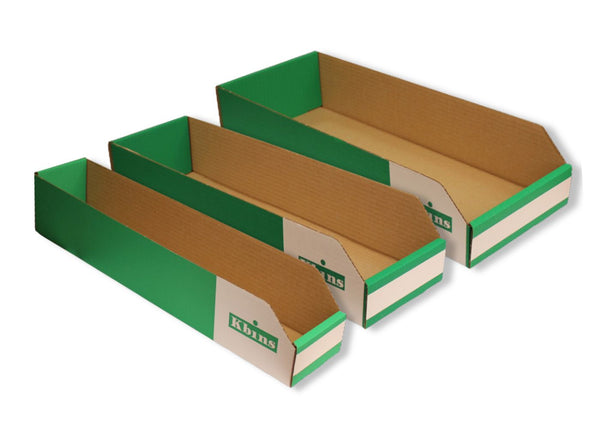The Eco-friendly Warehouse: How Cardboard Storage Bins are Paving the Way
In an age where sustainability is no longer a mere buzzword but a critical business strategy, warehouses – the backbone of global supply chains – are experiencing a transformative wave. One of the front-runners of this transformation is the adoption of eco-friendly storage solutions like Cardboard Picking and Storage Bins. Let's investigate their role in shaping a more sustainable, green, and efficient warehouse.
The Need for Sustainable Warehousing
The impact of warehousing on the environment can't be understated. From energy consumption to waste production, the industry has traditionally been resource-intensive. With increasing pressure from regulatory bodies and consumers demanding greener operations, there's a growing need for sustainable warehouse practices. And while renewable energy sources and waste management systems play their parts, eco-friendly storage solutions remain a pivotal yet often overlooked element.
Enter Cardboard Storage Bins
Made primarily from corrugated cardboard, these bins offer a sustainable alternative to plastic and metal storage solutions. Here’s how they are making a difference:
Recyclability: Unlike plastic containers that may end up in landfills for centuries, cardboard bins are fully recyclable. This means at the end of their lifecycle, they can be transformed back into usable products, significantly reducing waste.
Low Carbon Footprint: The production of cardboard bins generally requires less energy than their plastic or metal counterparts. Consequently, their carbon footprint is minimised from the outset.
Biodegradability: In scenarios where recycling isn't feasible, cardboard bins, being organic, decompose much faster and with less environmental impact than plastic bins.
Resource Efficiency: Cardboard, often made from recycled materials itself, is a testament to the circular economy. The production of Cardboard Storage Bins promotes using recycled materials, further conserving resources.

Beyond Environmental Benefits
Adopting Cardboard materials in storage bins and containers isn’t just an environmental decision – it’s a smart business move:
Cost-Efficiency: Cardboard bins are generally more affordable than other storage solutions. This cost-saving, especially for large-scale operations, can be significant.
Adaptability: Their lightweight nature and various sizes make them versatile for different storage needs, from light components to bulkier items.
Enhanced Workflow: The open-front design of these bins ensures that items are easily visible and accessible, leading to quicker picking times and improved workflow.
Conclusion
As the warehousing industry progresses, it's evident that sustainability and efficiency will remain at its core. With their myriad environmental and operational advantages, Cardboard Picking and Storage Bins are undoubtedly paving the way for a greener, smarter warehousing future. Warehouse managers and business owners looking to strike a balance between cost efficiency, operational excellence, and environmental responsibility should seriously consider integrating these bins into their storage strategy.
See our full range of Storage Boxes and Containers for more storage products.
Author:

Richard O'Connor is a Director at First Mats. He has deep knowledge in areas like Manufacturing, Warehousing, Marine, and Health & Safety. Richard's insights have been featured in well-known publications such as Bloomberg Business, The Sun, and Reader's Digest. His blend of industry expertise and passion for sharing makes him a sought-after voice in his fields.




